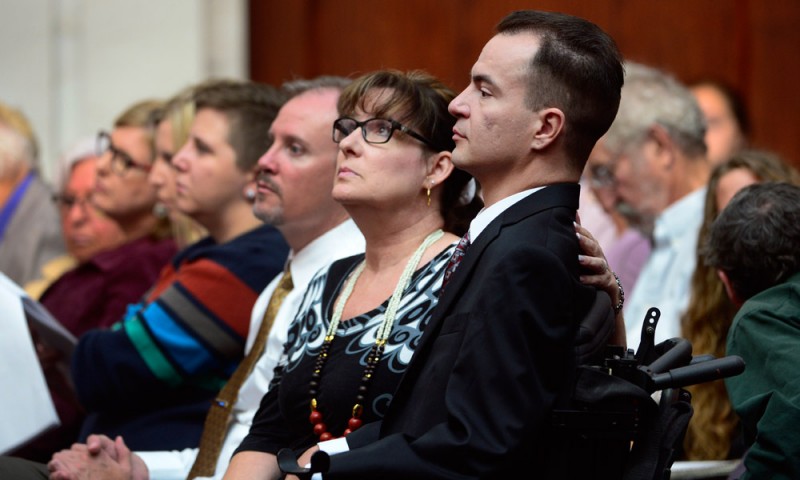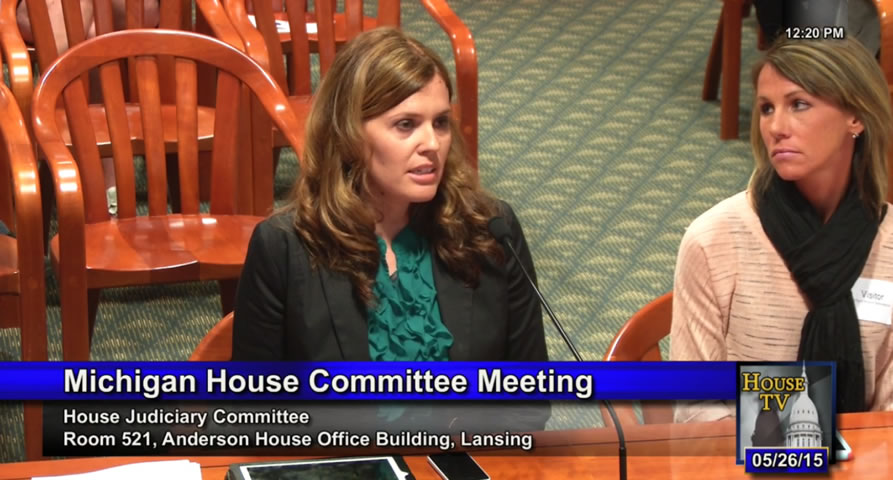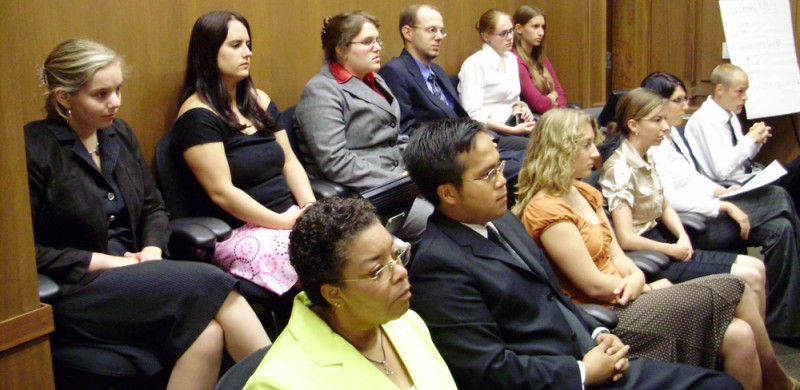Effective February 13, 2024
On February 6, 2024, the Michigan Supreme Court issued ADM File No. 2023-24, which adopts amendments to MCR 3.701 and the addition of MCR 3.715, .716, .717, .718, .719, .720, .721, and .722, effective February 13, 2024.
These changes follow the creation of the Extreme Risk Protection Order Act and amendments to the Firearms Act, the Code of Criminal Procedure, and the Revised Judicature Act in May of 2023.
- MCR 3.715 Definitions. Several terms are defined within this rule, including “complaint,” “existing action,” “minor,” “petitioner,” and “respondent.” In addition, MCR 3.715 indicates that the terms “dating relationship,” “possession or control,” “family member,” “guardian,” “health care provider,” “law enforcement agency,” and “law enforcement officer,” mean those terms as defined in MCL 691.1803.
- MCR 3.716 Commencing an Extreme Risk Protection Action. An extreme risk protection action is an independent action commenced by filing a complaint with the family division of the circuit court. A complaint may be filed regardless of whether the respondent owns or possesses a firearm and must be prepared on a form approved by the State Court Administrative Office and submitted with the complaint. An extreme risk protection action may only be commenced by
- the spouse or former spouse of the respondent;
- an individual who has a child in common with, has or has had a dating relationship with, or resides or has resided in the same household as the respondent;
- a family member;
- a guardian of the respondent;
- a law enforcement officer; or
- a health care provider, under certain circumstances.
MCR 3.716 also details requirements for the complaint, a complaint against a minor, and venue.
- MCR 3.717 Dismissals. Except as otherwise specified in the rules, an action for an extreme risk protection order (ERPO) may only be dismissed upon motion by the petitioner prior to the issuance of an order.
- MCR 3.718 Issuing Extreme Risk Protection Orders. Except as otherwise provided in the rule, the court must rule on a request for an ex parte order within one business day of the filing date of the complaint and must expedite and give priority to ruling on a request for an ex parte order. MCR 3.718 also specifies the factual requirements for granting an ex parte order as well as the procedures for immediate emergency ex parte orders, an anticipatory search warrant, and hearings. The court must expedite and give priority to hearings required by the extreme risk protection act and must schedule a hearing for the issuance of an ERPO under certain circumstances detailed in the rule.
- MCR 3.719 Orders. This rule details the form and scope of an order and stipulates the respondent’s response requirements, along with restrictions on concealed weapons and the process for surrendering firearms. Service, notice, and clerk of the court responsibilities are also covered in MCR 3.719.
- MCR 3.720 Modification, Termination, or Extension of Order. The petitioner may file a motion to modify or terminate the ERPO and request a hearing after the order is issued. The respondent may file one motion to modify or terminate an ERPO during the first six months that the order is in effect and one motion during the second six months that the order is in effect.
- MCR 3.721 Contempt Proceedings for Violation of Extreme Risk. In general, an ERPO is enforceable under MCL 691.1810(4)–(5), 691.1815(4), and 691.1819(4). MCR 3.721 outlines the guidelines for motions to show cause, service, search warrants, arraignment, pleas of guilty, scheduling or postponing hearings, prosecution after arrest, and violation hearings.
- MCR 3.722 Appeals. Appeals must generally comply with subchapter 7.200. Either party has an appeal of right from
- an order granting, denying, or continuing an ERPO after a hearing under MCR 3.718(D); or
- an order granting or denying an extended ERPO after a hearing under MCR 3.720(B).
The respondent has an appeal of right from a judgment of sentence for criminal contempt entered after a contested hearing.
The respondent has the lawful right to appeal a judgment of sentence for criminal contempt entered following a contested hearing.
Chief Justice Clement concurred with the proposed adoption of the ERPO court rules, but she wrote separately to address her concerns regarding inconsistent legal terminology used in the Extreme Risk Protection Order Act..
Among other linguistic inconsistencies, she emphasized that the Act “requires an individual to file “a summons and complaint” to initiate an ERPO action” but the nature of ERPO actions is consistent with that of a petition—not a complaint.
The Michigan Supreme Court has developed a range of SCAO forms aligned with the ERPO, showcasing their commitment to effective legal documentation.:
See the Court’s February 7, 2023 memorandum for more info.
Court Form Information
https://www.courts.michigan.gov/4908b5/siteassets/forms/scao-approved/recent-revisions/eoc_erpo.pdf
Related Articles
The Marijuana Industry Paid an Extra $1.8 Billion in Federal Taxes Because of the 280E Tax Code
News from the internet Why legalize cannabis when 280E is the gift that keeps on giving to the Federal government? Whitney Economics, a cannabis research firm, recently conducted a comprehensive analysis of the impact of federal taxes on the cannabis industry. The...
Federal Court Strikes Down Gun Ban For People Who Use Marijuana
The federal government's justification for upholding the law is "concerning," according to a federal judge, who ruled that the ban on marijuana users owning firearms is unconstitutional. A man was charged in Oklahoma in 2022 after police found marijuana and a handgun...
US court upholds ban on selling guns to marijuana card holders
SAN FRANCISCO — A federal ban on the sale of guns to medical marijuana card holders does not violate the Second Amendment, a federal appeals court said Wednesday. The ruling by the 9th U.S. Circuit Court of Appeals applies to the nine Western states that fall under...
More Posts

Detroit police make arrests at marijuana dispensary
The Detroit police raided and made arrests at marijuana dispensary in an article in the Detroit Free Press from July 14, 2015. Detroit police arrested two people and...

Michigan Medical Marihuana Patient Bill of Rights
On November 8th, 2008, by a majority of 63 percent, the citizens of the State of Michigan voted into law the constitutional initiative, Initiated Law 1 of 2008,...

Colorado Supreme Court: Employers can fire for off-duty pot use
The Colorado Supreme Court ruled Monday Jun 15, 2015, that Employers’ zero-tolerance drug policies trump Colorado’s medical marijuana laws. In a 6-0 decision,...

How a sex toy put spotlight on Michigan civil asset forfeiture laws targeted for reform
The headlines read... "How a sex toy put national spotlight on Michigan civil asset forfeiture laws targeted for reform" "State Legislators Reconsider Forfeiture...

Reform Today’s Forfeiture Laws
Everyday, I get calls to my office from medical marijuana patients and caregivers who have been raided or pulled over by police. Often times, these individuals are not...

KOMORN LAW NEWSLETTER ISSUE #1 May 2015
The Michigan Legal Advisor News Letters. Read the current newsletter from Michigan's #1 Medical Marijuana Defense Attorney Michael Komorn. KOMORN LAW NEWSLETTER ISSUE...

Attorney Michael Komorn Lectures Students at the U of M Law School
I wanted to give a huge thanks to University of Michigan Law School Professors Howard Bromberg, Mark Osbeck and Law School class. This past Thursday I had the honor of...

Jury Selection In Marihuana Cases
A jury trial is fundamental to our democratic system of government. Every American citizen should embrace this responsibility by participating, and ensure justice...

Planet Green Trees Radio Episode 149-MSC People v. Koon
The best resource for everything related to Michigan medical marijuana with your host Attorney Michael Komorn. Live every Thursday evening from 8 -10 pm eastern time....

Polygraphs Proven Unreliable, Used for Police Intimidation
Polygraphs are widely recognized as unreliable yet police still use them to elicit confessions. By Michael Komorn Many states don’t allow polygraph test to be admitted...











